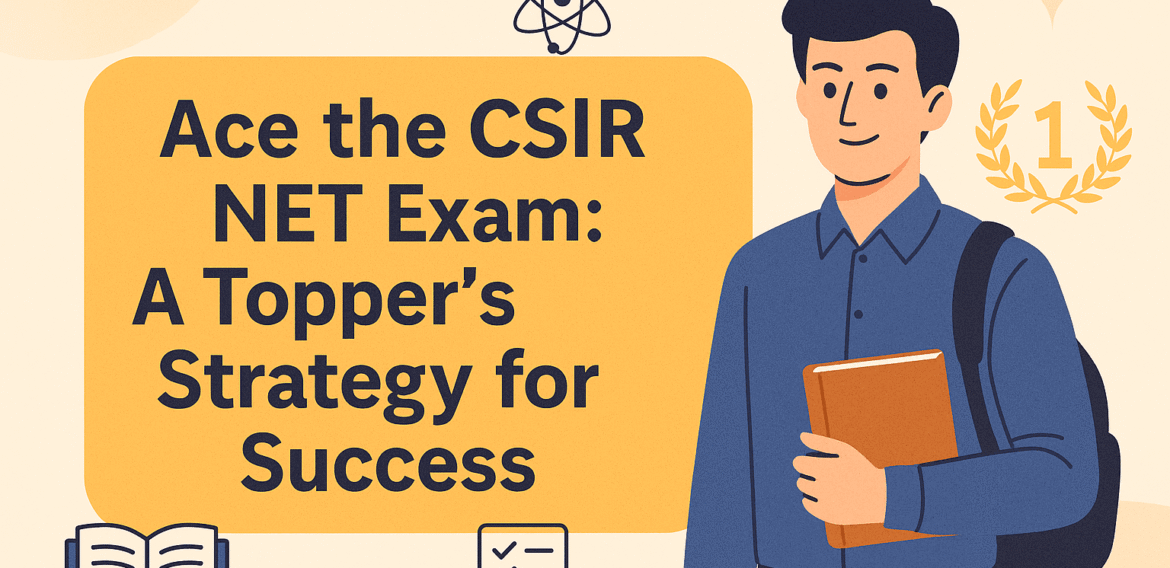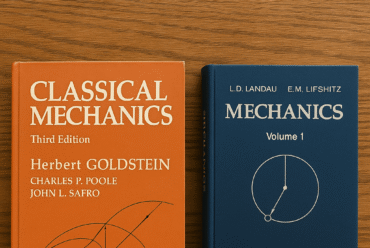Ace the CSIR NET Exam: A Topper’s Strategy for Success (Revised)
The CSIR NET exam on December 18th is fast approaching! To help you finalize your preparation, we’re sharing key insights from a truly exceptional achiever: Vasanth, AIR 5 in CSIR NET and AIR 3 in JEST. His journey from an engineering background to cracking the exam in just three months offers invaluable lessons for every aspirant. This revised blog post distills his focused strategy to help you maximize your effort in the final weeks, while emphasizing a complete (or near-complete) syllabus review.
- The Power of “Present Karma”: Full Focus & No Second Options
Vasanth’s success story is a testament to the philosophy that “the future is all the karma of the present.” He didn’t dilute his efforts with distractions or thoughts of a “next time.”
- Commit 200%: Vasanth stressed the importance of thinking of your current attempt (especially if it’s your first) as the last and best chance. Give it your all now.
- Don’t Keep a Back-up Plan: According to Vasanth, if you are serious about physics and the exam, don’t keep second options in mind. A complete, singular focus is the most effective approach for success in a short span.
- A Laser-Focused Course Coverage Strategy: Prioritize Core Strength
Vasanth’s strategy, while time-constrained, highlights the importance of deep mastery in high-yield areas which is crucial for a top rank. While every aspirant should aim for complete syllabus coverage, Vasanth’s path demonstrates where to put the maximum effort:
- Prioritize High-Yield Topics (The Big Five): Vasanth focused intensely on the major subjects that contribute the majority of marks in both Part B and Part C: Quantum Mechanics, Statistical Mechanics, Classical Mechanics, Electromagnetic Theory (EMT), and Mathematical Physics.
- Maximize Marks from Core Areas: The goal is to be unbeatable in the core areas. Since time is short, ensure that you can solve almost every question from the topics you’ve studied. Vasanth’s impressive score of 137.67 marks came from ensuring deep proficiency in roughly 65% of the content.
- Actionable Tip for December Aspirants: If time is limited, follow Vasanth’s emphasis: Stop wasting energy on superficially covering every single corner of the syllabus. Instead, strengthen the 70-80% of core content you’ve already covered, ensuring your fundamental understanding is rock-solid. For the remaining topics (like Nuclear or Condensed Matter), focus on basic concepts and recurring PYQ patterns.
- The Holy Trinity of Preparation: Classes, Notes, and PYQs
Vasanth’s day-to-day study strategy was disciplined and effective:
- Attend Classes and Take Proper Notes: He completely relied on live classes and notes. He emphasized taking the live sessions seriously—fully focused, to absorb information efficiently.
- Revise and Practice PYQs (The Most Important Step):
- Practice over New Material: Vasanth’s practice was almost entirely limited to Previous Year Questions (PYQs). Use PYQs to get a solid “grip on the subject” from an objective, exam-oriented point of view.
- Complete PYQs: Whatever topics you prepare, ensure you do 100% of the relevant PYQs by yourself. This is non-negotiable for success.
- Effective Revision: Given the time constraint, he flagged specific questions for a quick brush-up later, underscoring the importance of absorbing the material effectively the first time.
- The Daily Grind and Strategic Time Allocation
Consistency and strategic scheduling were vital elements of his routine:
- Consistent Study Hours: Vasanth consistently studied for seven to eight hours a day.
- Early Morning for Tough Concepts: He used the early morning (starting around 4-6 AM) to tackle the most complicated concepts, such as Quantum Mechanics, as the brain is often most fresh and receptive during these hours.
- Master the Last Mile: Mock Tests and Memory Revision
The final weeks and days leading up to the exam require a shift in strategy.
- Stop Learning New Things: Vasanth advises stopping the introduction of new material at least a week (or even 20 days) before the exam. This period should be dedicated entirely to consolidation.
- Memory-Based Revision: He saved memory-based topics with many details (like specific formulas in Statistical Mechanics and EMT) for the final few days, revising them right up until the exam to ensure maximum recall.
- Mock Tests are Non-Negotiable: Despite his time crunch, Vasanth took two full-length mock tests, with his score in the final mock test closely mirroring his actual exam score. This highlights the importance of simulated practice.
- Exam Hall Strategy: The three hours of the exam are critical. Vasanth recommended having a plan:
- Skim the Paper: Get an overall view to identify easy questions across all sections (Part A, B, and C).
- Part C First? If the Part C questions appear straightforward (often the case with certain topics), tackle them next to quickly secure 5 marks per question.
- Part A and B: Proceed to Part B, then loop back to Part A to mop up remaining manageable questions. The key is to secure the easy, high-scoring questions first.
Final Takeaway: Follow the Process, Not the Noise
The most crucial advice from Vasanth is to keep it simple and be a good follower.
- Avoid Overthinking: Don’t be a victim of unnecessary overthinking or the “broken tile syndrome” (obsessing over small, unfinished parts). Simply follow what your trusted teachers say and stick to the strategy of diligent practice.
- It’s Not Rocket Science: The CSIR NET rewards hard work, disciplined practice, and repetition of the right material (PYQs). Focus on the fundamental process, and your success on December 18th will be within reach. Good luck!







